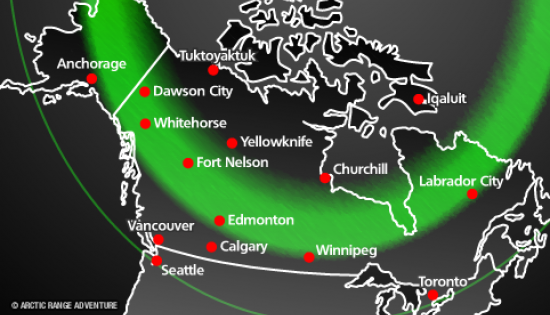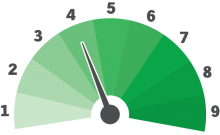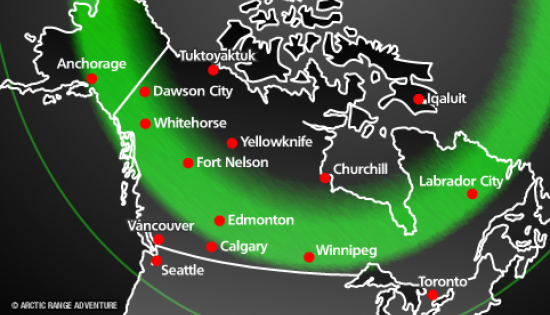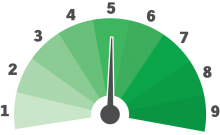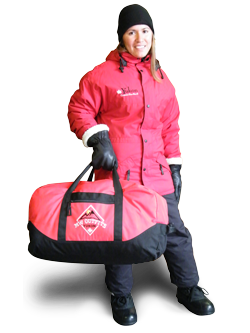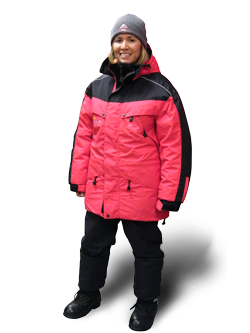To see aurora you need clear and dark sky. During very large auroral events, the aurora may be seen throughout the US and Europe, but these events are rare. During an extreme event in 1958, aurora was reported to be seen from Mexico City. During average activity levels, auroral displays will be overhead at high northern or southern latitudes. Places like Whitehorse, Yukon; Yellowknife, NWT; Gillam, Manitoba; the southern tip of Greenland; Reykjavik, Iceland; Tromsø, Norway; and the northern coast of Siberia all offer a good chance to view the aurora overhead. In North Dakota, Michigan, Quebec, and central Scandinavia, you might be able to see aurora on the northern horizon when activity picks up a little. In the southern hemisphere the aurora has to be fairly active before it can be seen from places other than Antarctica. Hobart, Tasmania, and the southern tip of New Zealand have about the same chance of seeing aurora as Vancouver, BC, South Dakota, Michigan, Scotland, or St. Petersburg. Fairly strong auroral activity is required for aurora viewing in those locations.
The best time to watch for aurora is around midnight, but aurora occurs throughout the night. There are very few places on Earth where one can see aurora during the day.
Since clear sky and darkness are essential to see aurora, the best time is dictated by the weather, and by the sunrise and sunset times. The moon is also very bright, and should be taken into account when deciding on a period to travel for the purpose of auroral observation. You might see aurora from dusk to dawn throughout the night. The chances are higher for the three or four hours around midnight.

